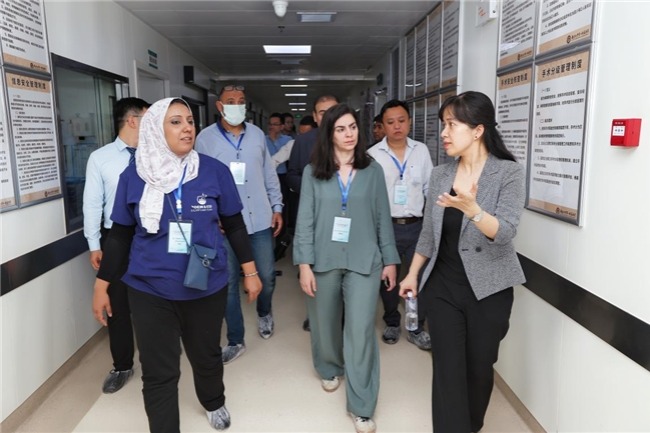Grassroots doctors spread rural care - Chinadaily.com.cn
After completing her medical training, 38-year-old Han Na has served as a grassroots doctor in Xiazhizhai village on the outskirts of Beijing for the past two years. Sitting in her modest clinic, surrounded by shelves stocked with medicine, Han spoke with quiet determination about her commitment to the local community.
Han works at a rural health clinic serving a residential community of about 2,300 people in Beijing's Pinggu district. Since arriving in 2023, she has firmly rooted herself in the village.
Back in 2017, Han enrolled in the inaugural village doctor training program at Capital Medical University. "I signed up as soon as I saw the announcement because I had dreamed of becoming a doctor since I was a child," she recalled. "I am truly grateful this program gave me a chance to realize that dream."
After five years of study and professional training, Han earned her medical license and was assigned to the village clinic. When the previous village doctor unexpectedly passed away, Han was left to run the office alone and rebuild it from scratch.
"When I first arrived, the clinic had only basic equipment to measure blood pressure and height," she said. "Now, we stock over 500 types of medicines and can treat a wide range of health issues."
In 2020, the National Health Commission introduced a policy allowing medical graduates to become village doctors without taking additional exams. By 2023, more than 4,300 medical graduates had taken advantage of the initiative. That same year, the commission enhanced the policy by improving incentives and support systems, with cooperation from departments in education, fiscal, human resources and social security.
"When I started, only about a dozen people visited each day. Now, I see 60 to 70 patients daily," she said. "The clinic is currently open only on weekdays. I hope we can extend our hours to better serve the community."
Elderly patients with chronic illnesses are among her most frequent visitors, relying on the clinic for timely medication refills. Instead of traveling by car to the district medical center, they can simply walk to Han's clinic in a few minutes. "Our ample supply of medicine meets their needs," she said.
Thanks to her previous surgical experience in hospitals, Han is even able to handle procedures like stitches in the clinic.
Another graduate of the same program, 36-year-old Ge Jia, works at a village clinic in Sihai township in Beijing's suburban Yanqing district. Having grown up in the village, Ge felt a strong connection to the place and chose to return as a grassroots doctor.
Ge, who started at the clinic this month, has been busy organizing health records for villagers. "Working as a village doctor makes me feel like a walking data center — I can remember every villager's health condition," he said.
He added that knowing villagers' family situations helps him make more informed diagnoses.
"This face-to-face interaction makes us feel like a family. It's very different from working in a large hospital."
Ge also noted that some villages lack regular medical personnel, resulting in limited health awareness. "I plan to promote health education and chronic disease management here," he said.
You may also like...
Diddy's Legal Troubles & Racketeering Trial

Music mogul Sean 'Diddy' Combs was acquitted of sex trafficking and racketeering charges but convicted on transportation...
Thomas Partey Facing Rape & Sexual Assault Charges

Former Arsenal midfielder Thomas Partey has been formally charged with multiple counts of rape and sexual assault by UK ...
Nigerian University Admission Policy Changes

JAMB has clarified its admission policies, rectifying a student's status, reiterating the necessity of its Central Admis...
Ghana's Economic Reforms & Gold Sector Initiatives

Ghana is undertaking a comprehensive economic overhaul with President John Dramani Mahama's 24-Hour Economy and Accelera...
WAFCON 2024 African Women's Football Tournament

The 2024 Women's Africa Cup of Nations opened with thrilling matches, seeing Nigeria's Super Falcons secure a dominant 3...
Emergence & Dynamics of Nigeria's ADC Coalition

A new opposition coalition, led by the African Democratic Congress (ADC), is emerging to challenge President Bola Ahmed ...
Demise of Olubadan of Ibadanland
Oba Owolabi Olakulehin, the 43rd Olubadan of Ibadanland, has died at 90, concluding a life of distinguished service in t...
Death of Nigerian Goalkeeping Legend Peter Rufai

Nigerian football mourns the death of legendary Super Eagles goalkeeper Peter Rufai, who passed away at 61. Known as 'Do...


